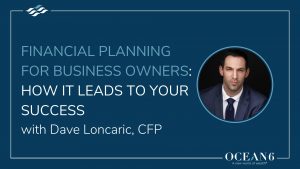For most of us, the biggest tax bill we will ever pay in our lives is at death. Unfortunately, planning how to reduce that bill right before that inevitable day is often too late. With effective estate planning tactics in place, you can give yourself the peace of mind your family won’t have an additional financial burden upon your death.
Disclaimer: Estate planning is a complex process that needs to be carefully reviewed on a case-by-case basis. Though this review will provide valuable estate planning tips, it is by no means extensive enough to be relied upon as an estate planning guide. Please reach out to us directly if you have any questions or want to review your estate plan with a professional.
6 Estate Planning Tips To Prepare Your Family Financially
Here are some estate planning tips to help reduce your tax burden and make things easier for your family financially when you pass away.
1. Have a named executor of your will
The most important thing to consider is ensuring you have a will and a named executor of the will. In British Columbia, if you die without a will, your property will be divided according to BC law. Your family will have to apply for a grant of administration, which is not only time-consuming but increases the cost of administering your estate.
2. Consolidate your investment accounts in one place
Consolidating your investment accounts in one place helps lessen the work of an executor. It’s easier for an executor to reach out to one advisor versus tracking down all your accounts in various investment firms.
You might have asked yourself if it makes more sense to diversify your investments amongst different advisors throughout the estate planning process. But the truth is all advisors should have access to the same products. If you’re pitting your advisors against each other to see who can get you the greatest returns, that should be enough to tell you that none of them is the right fit for you.
We recommend working with a single advisor you like and trust to oversee all your investment accounts. Your family will thank you for it when you’re gone.
3. Add your spouse as a joint owner on your investment accounts
Are you married and want to prevent your spouse from having to deal with unnecessary taxes?
Ensure you’re both set up as joint owners on your investment accounts. Unfortunately, at the second death between you and your spouse, there will be taxes on all those non-registered accounts and properties (aside from your principal residence).
Make it clear in your will who you would like these assets to pass on to when you are estate planning.
(Have you been holding off on having important financial conversations with your spouse, including about estate planning? Take a look at this post next: How to Talk to Your Spouse About Your Financial Future)
4. Add beneficiaries to all your registered accounts
If you’re married and your spouse is a beneficiary of your RRSP and TFSA, these accounts will roll over completely tax-free. (We’ll share some comprehensive definitions of RRSPs and TFSAs in a moment).
For your RRSP, unless it passes onto your spouse or dependent child, the RRSP’s value at the time of death is included in the deceased’s taxable income for the year of death. If your spouse is not the beneficiary on your TFSA, it can pass on to a beneficiary of your choice. However, any future growth after death may be taxable.
Now, back to those definitions, an RRSP is a tax-deductible retirement savings plan registered with the Canadian Government that you or your partner can open and contribute to.
It’s important to note, as long as funds remain in the RRSP, they’re tax-exempt but you generally have to pay taxes when you take money out.
A TFSA or Tax-Free Savings Account is a way for an adult with a valid social insurance number to set aside tax-free money throughout their lifetime.
With the TFSA, any amount contributed or earned (for example, investment income and capital gains) in the account is tax-free, even when withdrawn.
In addition, any fees or interest on money borrowed to contribute to a TFSA is not tax-deductible.
5. Spend your RRSPs while you are alive
Many advisors tell their clients to push off drawing from their RRSPs for as long as possible to avoid taxes.
This strategy is flawed. Why? Because paying those taxes is inevitable!
If you die without a spouse or beneficiary and have a large RRSP balance, half of that will be given to the CRA. Instead, the solution we see is to start drawing early from your RRSPs and pay those taxes equally over a longer period.
If you don’t plan on retiring but have a large RRSP balance, consider not paying yourself from your corporation. Instead, start drawing from your RRSPs. There are simple strategies to help draw the funds from the corporation tax-free while minimizing the corporate tax bill upon death.
(Read more about using your corporation to invest and save taxes in this post)
6. Utilize your life insurance effectively
Life insurance pays out tax-free directly to the beneficiaries of your choice. We recommend owning life insurance inside your corporation and naming your corporation as the beneficiary. When you die, the proceeds can be drawn out of your corporation through a notional account known as the capital dividend account. It can be paid to whomever you have named as the beneficiary.
Life insurance is a great product to minimize taxes. It also helps cover debts, even out your estate between your beneficiaries, and much more.
(We have plenty of additional resources about life insurance on our blog. Click here to learn why it’s time for business owners to revisit their policies. Or use this link to learn about using life insurance for retirement.)
Let’s Talk More About Estate Planning
We take a unique approach to financial and estate planning at Ocean 6. Quite simply, we want to change the game. Ready to see what that looks like for you? Learn More about The Blueprint or contact us today.
This post was first published in 2020, but updated in 2021 just for you.




